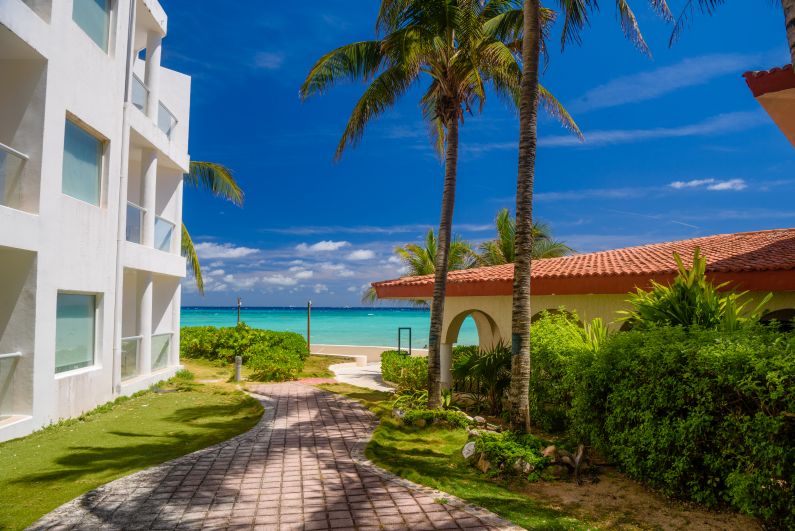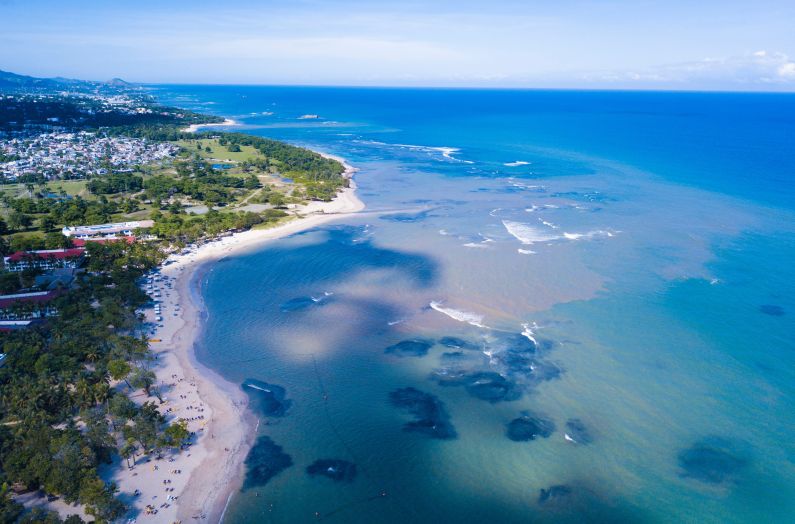
Moving to a new country involves many considerations, from learning the local culture to navigating the legalities of relocation. For those looking to trade the frigid winters of the United States and Canada for the warm, tropical climate of the Dominican Republic, this guide aims to simplify the complexities, especially when you are eyeing the beautiful North Coast of the country.
Why the North Coast to live?
The North Coast of the Dominican Republic, featuring cities like Puerto Plata, Cabarete, and Sosúa, is a haven for beach lovers and adventure seekers.
Known for stunning beaches and vibrant culture, it’s become a popular destination for North Americans. The area offers diverse outdoor activities, from kitesurfing to hiking, and boasts quality healthcare and education options.
With convenient transport links for international travel and a variety of real estate choices, it’s a compelling location for both retirees and young professionals.
Understanding the Legal Requirements
Before you can fully embrace the stunning Caribbean sunsets and relaxed lifestyle, it’s crucial to get your legal documentation in order. If you’re a citizen of the U.S. or Canada, you can easily obtain a tourist visa upon arrival for short stays. However, if you plan to reside for an extended period, applying for a residence visa becomes necessary.
Navigating the intricacies of immigration law can be challenging, so consulting with a legal advisor who specializes in Dominican Republic immigration is often invaluable. They can guide you through the process, helping you understand the types of visas available, the required documentation, and the timelines you can expect. This will not only ensure that you remain compliant with local laws but will also save you time and stress in the long run.
Shipping Personal Goods
Moving abroad involves various logistics, one of the most important being how to handle your personal belongings. If you’re relocating to the Dominican Republic’s North Coast from the U.S. or Canada, this becomes particularly relevant. Deciding what to bring along and what to purchase locally can significantly impact both your moving experience and budget.
Many people opt to ship only essential items, like clothing and personal keepsakes, while choosing to buy furniture, appliances, and other home goods after arriving.
This approach can dramatically reduce shipping costs and logistical complexities. Additionally, consider consulting with shipping experts who can guide you through international regulations, helping you avoid unexpected fees or complications.
By carefully planning the shipment of your belongings, you can make your relocation smoother and potentially more cost-effective
Decoding the Financial Side of Your Move: The ABCs of Import Duties and Taxes in the Dominican Republic
Moving to the Dominican Republic isn’t just about soaking up the sun; there’s a financial landscape to navigate, too. Sure, you’re keen to bring your treasured items with you, but don’t let the excitement overshadow the reality of import duties and taxes. These aren’t mere add-ons; they’re a crucial part of the relocation puzzle that can make or break your budget.
Don’t dive in without guidance. Seek the wisdom of a seasoned customs broker or shipping guru familiar with the Dominican Republic’s specific customs quirks. These experts can spill the tea on everything from variable tax rates to sneaky exemptions you might never have found on your own.
In a nutshell, arm yourself with insider knowledge to breeze through customs, avoid any nasty financial surprises, and kick off your Dominican chapter on the right note.
Choosing Your Transport Avenue: The Sea vs. Air Freight Dilemma
When relocating to a new country, one of the pivotal decisions you’ll face is how to transport your belongings. Both sea and air freight come with their own sets of benefits and drawbacks. If you’re leaning towards sea freight, you’re looking at a more budget-friendly option.
However, patience is key, as this method generally entails a longer transit time, sometimes spanning several weeks.
On the flip side, air freight promises speed. Your items can arrive in just a matter of days, making it an excellent option for those on a tight schedule. Yet, this expedited service often comes with a higher price tag, so be prepared for steeper costs.
Ultimately, the choice hinges on your individual needs, timeline, and budget. Some even opt for a hybrid approach—shipping non-essentials by sea and vital items by air—to balance cost and convenience.
Discovering Your Ideal Residence with Century 21 Perdomo
When it comes to finding the perfect home on the North Coast, your options are as diverse as the landscape itself. Whether your dream dwelling is a luxurious villa overlooking the ocean or a charming apartment nestled in a bustling city center, Century 21 Perdomo is the real estate agency equipped to guide you through the maze of listings.
Our local expertise ensures a streamlined search, allowing you to find properties that not only meet your living criteria but also fall within your budget. Leveraging the local know-how of Century 21 Perdomo, you’ll sidestep common pitfalls and move straight toward securing a home that enhances your new tropical lifestyle.
Adjusting and Becoming Part of the Community
Diving into the Dominican Republic’s rich cultural fabric can be as rewarding as it is daunting. While new experiences beckon, mastering the local language, customs, and accepted social behaviors becomes key for an easy, fulfilling adjustment to your new surroundings. Engaging with neighbors, attending local gatherings, and learning a handful of essential local phrases can accelerate your integration and enrich your overall experience.
Essential Paperwork and Criteria for Container Moves by Dominicans or Legal Residents
As a Dominican national or legal resident gearing up to return home with a container of household items, it’s crucial to have specific documentation at hand for a seamless transition. Here’s what you’ll typically need:
- Dominican Passport or Cédula (National ID)
- Bill of Lading, which outlines the container’s contents
- Inventory List: A comprehensive rundown of the items, preferably in English or Spanish
- Customs Declaration Form
- Evidence of Residency: Could be utility bills, rental agreements, etc., to validate your legal resident status
- Authorization Letter: A document permitting customs agents to represent you, if applicable
- No Criminal Record Certificate
Understanding Import Duty Exemptions
If you’re a Dominican citizen or legal resident making a return move, you may qualify for specific exemptions on import duties for your household goods and personal belongings. The eligibility for these waivers usually hinges on factors such as how long you’ve resided abroad and the nature of the items you’re bringing back with you.
To ensure you have the most up-to-date and accurate information, it’s highly recommended to reach out to your nearest Dominican embassy or consulate.
Importing a Car:
If you’re considering moving with a car, you should be aware of the following:
- Proof of Ownership – Original car title and bill of sale
- Technical Certificate of the Vehicle
- Certificate of No Criminal Record
- Copy of Passport or Dominican ID (Cédula)
- Proof of Residency in the Dominican Republic
- Import Duties and Taxes – Import taxes will apply, and the amount varies based on the car’s age, make, and model.
All Vehicles Must Meet Dominican Republic’s Environmental and Safety Standards
Important Note:
All documents should be authenticated and notarized, and you may also be required to pay customs duties and taxes on your goods and vehicle.
By making sure you have all these documents in order and understand the associated costs, you can ensure a smoother transition when relocating to the North Coast of the Dominican Republic.
Keep in mind that laws and regulations can change, so it’s advisable to consult professionals and local authorities for the most current information.
Wrapping Up Your Move to the North Coast of the Dominican Republic
Taking the leap to relocate from the United States or Canada to the North Coast of the Dominican Republic is no small feat, but the rewards are immensely fulfilling. With a blend of meticulous planning, a clear understanding of the legal landscape, and the guidance of local experts, your transition to this Caribbean haven can be seamless and gratifying.
From legal preparations to finding your dream home, each step is a move toward your new, exciting life under the Dominican sun.



